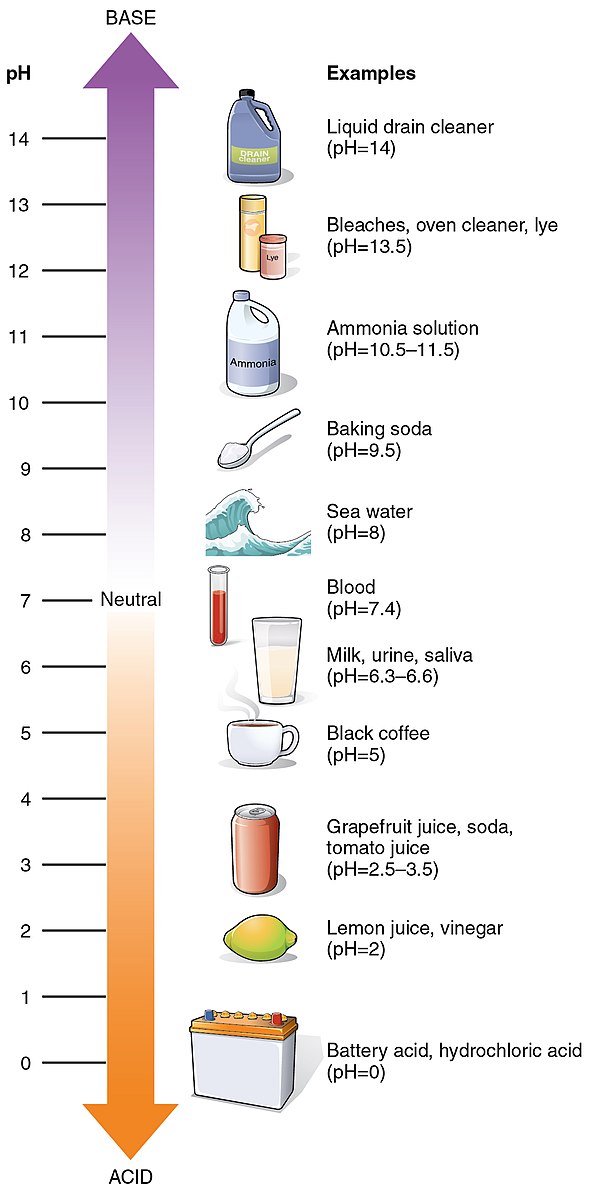The pH of water from a refrigerator is typically around 7, which is neutral. This is because the water from a refrigerator is usually filtered and does not contain many contaminants that could affect its pH level. However, the pH level of water can be affected by various factors, including the materials that come into contact with the water and the presence of certain chemicals or substances.
Understanding the pH of Refrigerator Water
The pH scale ranges from 0 to 14, with 7 being neutral. Anything below 7 is considered acidic, while anything above 7 is considered basic or alkaline. The pH of water from a refrigerator is usually around 7, which is the ideal range for drinking water.
This is because the water in a refrigerator is typically filtered through a water filtration system that removes impurities and contaminants. The filtration process helps to maintain the neutral pH of the water, ensuring that it is safe and healthy to drink.
Factors Affecting the pH of Refrigerator Water
 Image source: OpenStax College
Image source: OpenStax College
While the pH of refrigerator water is typically neutral, there are several factors that can affect the pH level:
-
Water Source: The pH of the water that enters the refrigerator can vary depending on the source. For example, if the water comes from a well or a municipal water supply, it may have a different pH level than water from a filtered or purified source.
-
Refrigerator Components: The materials used in the refrigerator’s water lines, such as copper or other metals, can leach into the water and affect its pH level.
-
Water Filtration System: The type of water filtration system used in the refrigerator can also impact the pH of the water. Some filtration systems are designed to balance the pH of the water, while others may not have this feature.
-
Water Additives: If you add any chemicals or substances to the water in your refrigerator, such as water softeners or pH adjusters, this can also affect the pH level.
Checking the pH of Refrigerator Water
To ensure that the pH level of your refrigerator’s water is safe to consume, you can use a home drinking water test kit. These kits are readily available and can help you determine the pH level of your water, as well as identify any potential contaminants or issues.
Here’s a step-by-step guide on how to test the pH of your refrigerator’s water:
- Collect a sample of water from your refrigerator’s water dispenser or ice maker.
- Follow the instructions provided with your water test kit to test the pH level of the water.
- Compare the results to the recommended range for safe drinking water, which is typically between 6.5 and 8.5.
If the pH level of your refrigerator’s water is outside of this range, you may need to take steps to address the issue, such as:
- Replacing the water filter in your refrigerator
- Checking the materials used in the water lines for any potential leaching
- Consulting with a water quality expert or healthcare professional for further guidance
Maintaining the pH of Refrigerator Water
To maintain the pH of your refrigerator’s water, it’s important to regularly replace the water filter. Most manufacturers recommend replacing the filter every 6 months or so, depending on the usage and water quality in your area.
Additionally, you can consider using a water filtration system that is specifically designed to balance the pH of the water. These systems often use a combination of activated carbon and other filtration media to remove contaminants and adjust the pH level.
Conclusion
The pH of water from a refrigerator is typically around 7, which is neutral and safe for drinking. However, it’s important to be aware of the factors that can affect the pH level, such as the water source, refrigerator components, and water filtration system. By regularly testing the pH of your refrigerator’s water and maintaining the water filter, you can ensure that you and your family are drinking safe, healthy water.
References:
– https://www.quora.com/Is-it-true-that-the-water-out-of-a-fridge-is-distilled
– https://www.whirlpool.com/blog/kitchen/how-do-refrigerator-water-filters-work.html
– https://www.fridgefilters.com/fridgepedia-ph.html
